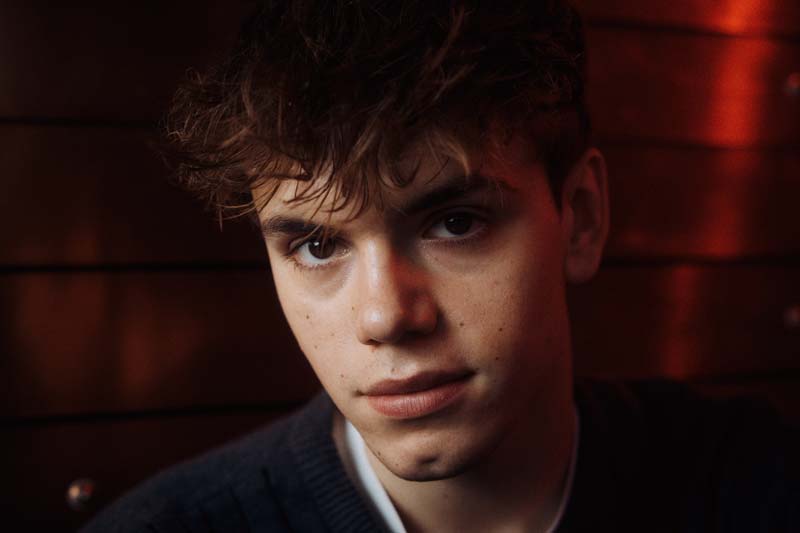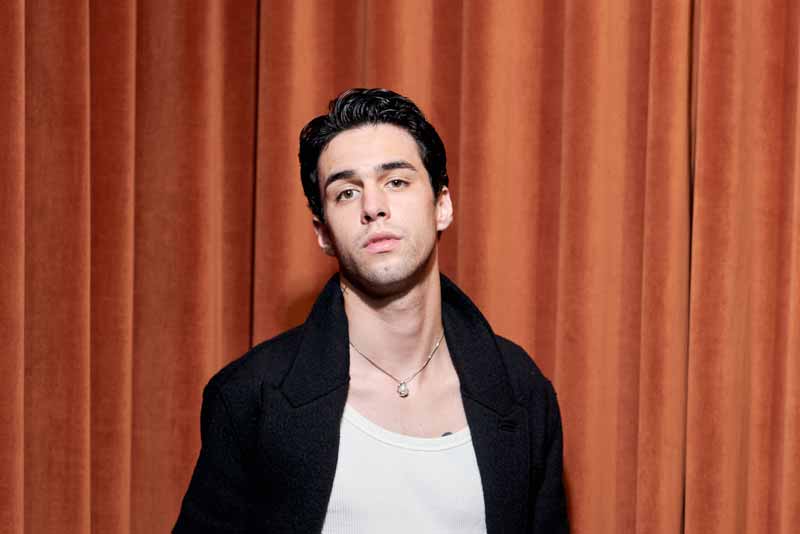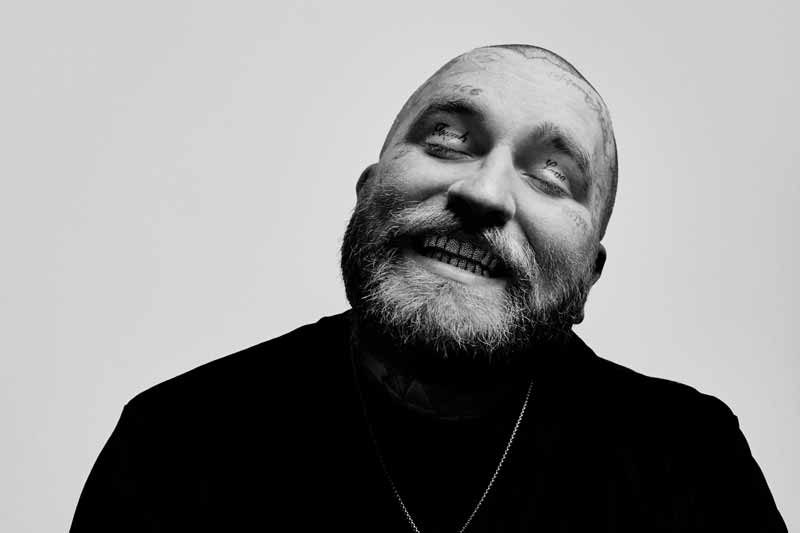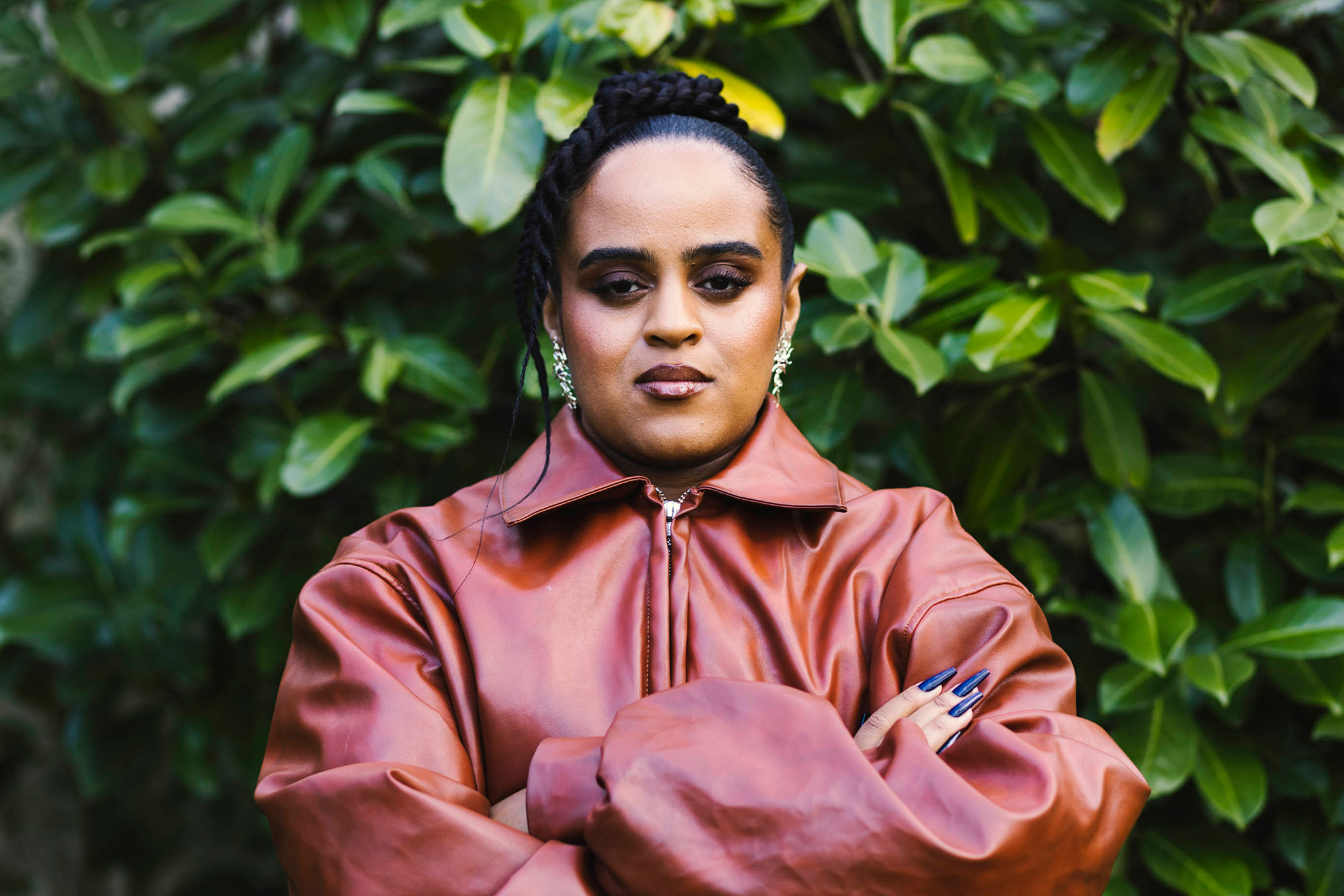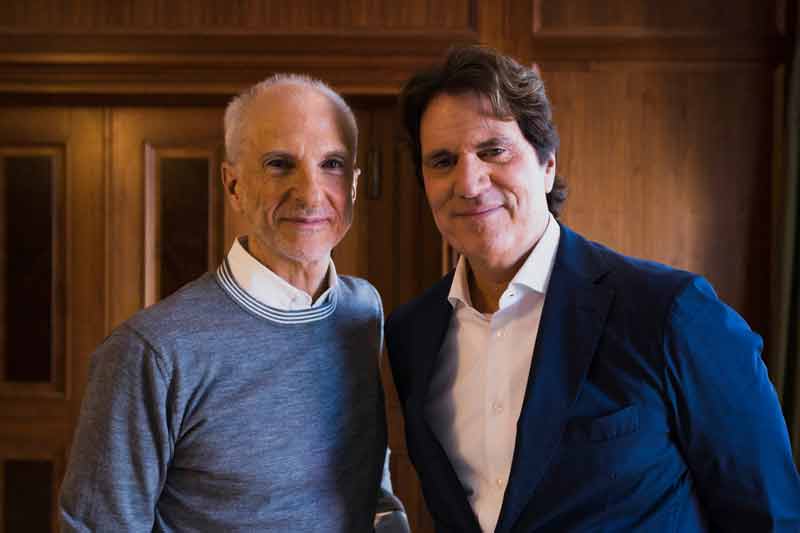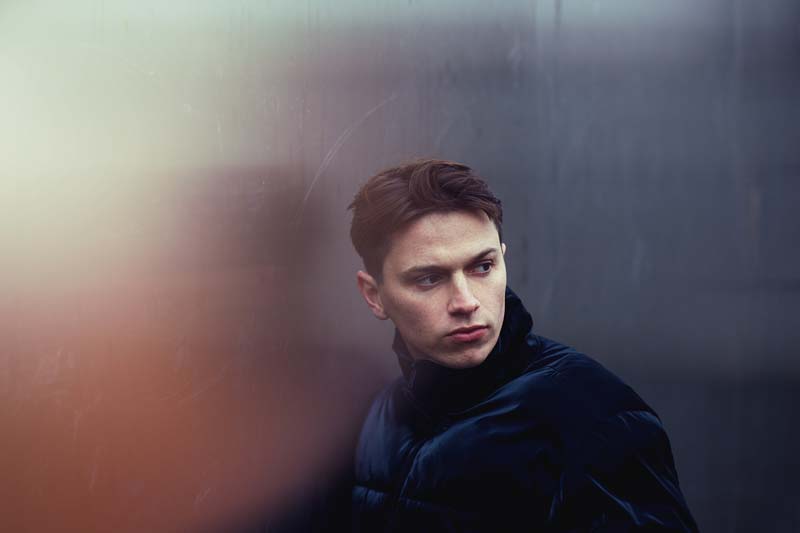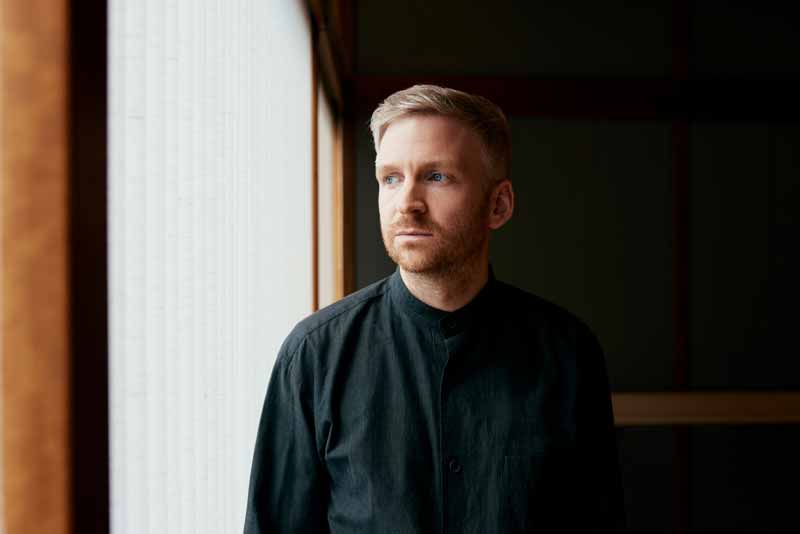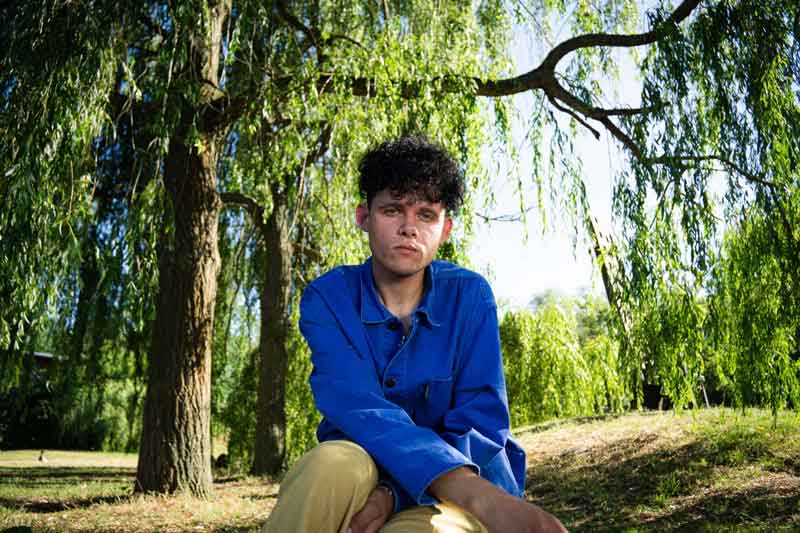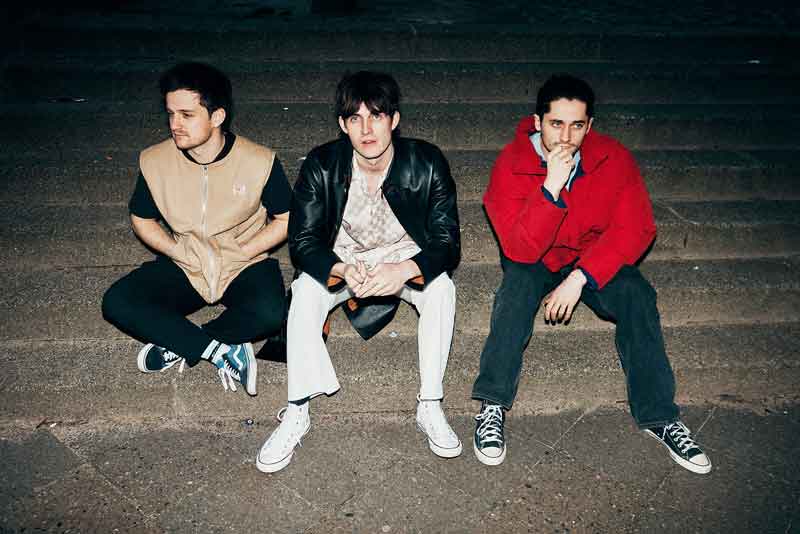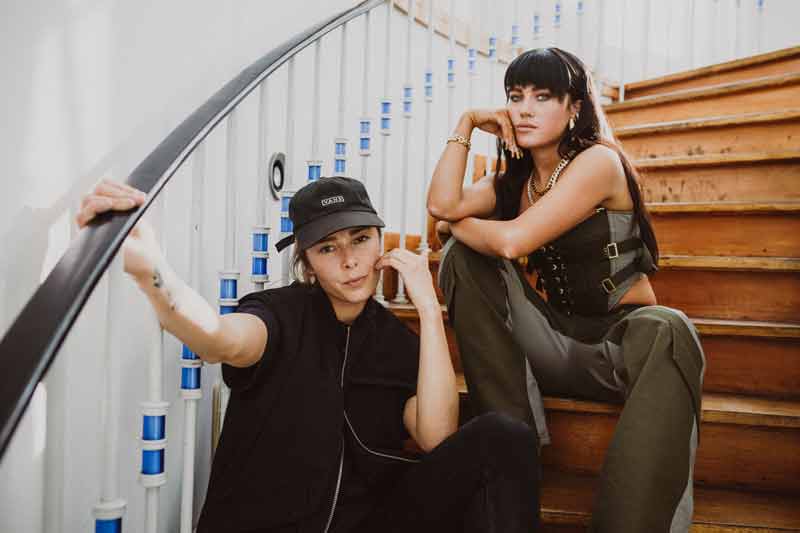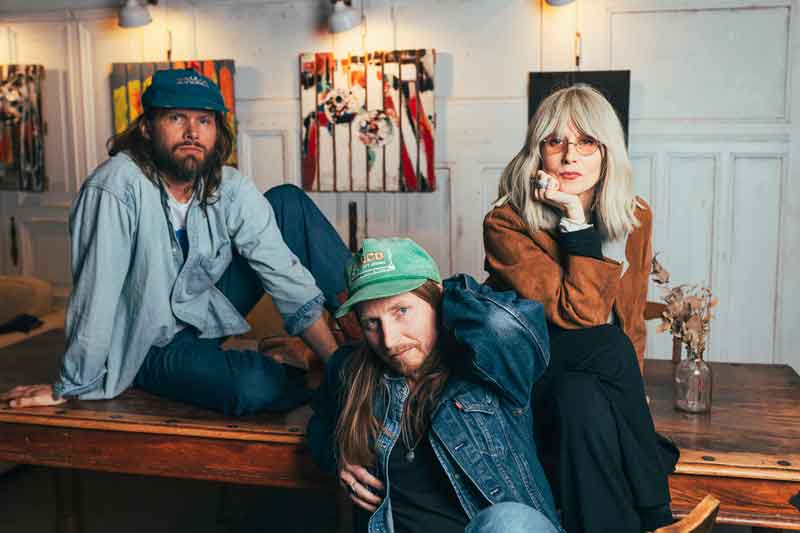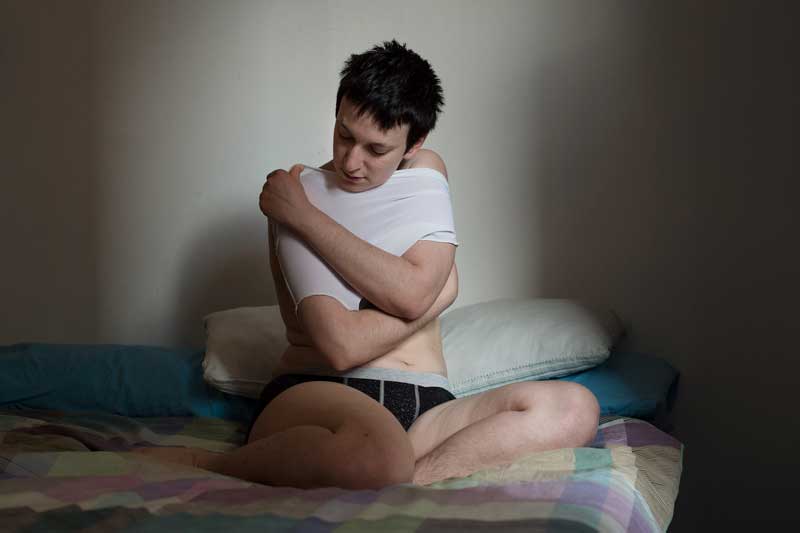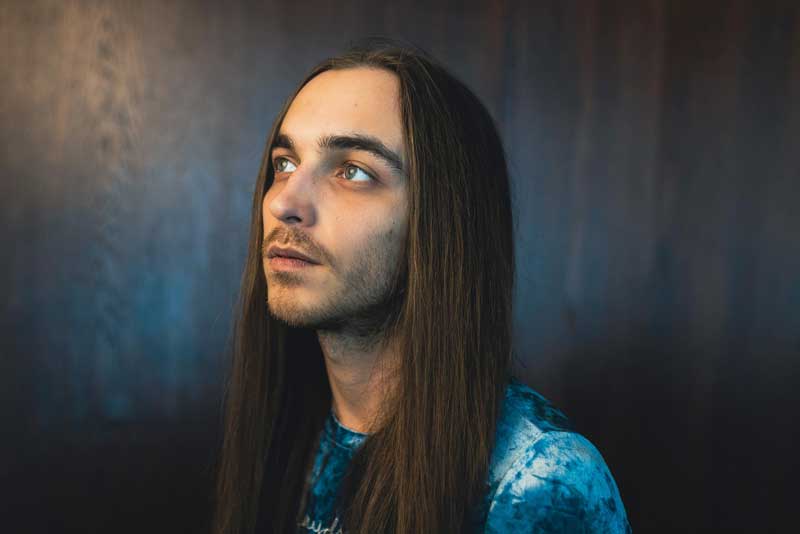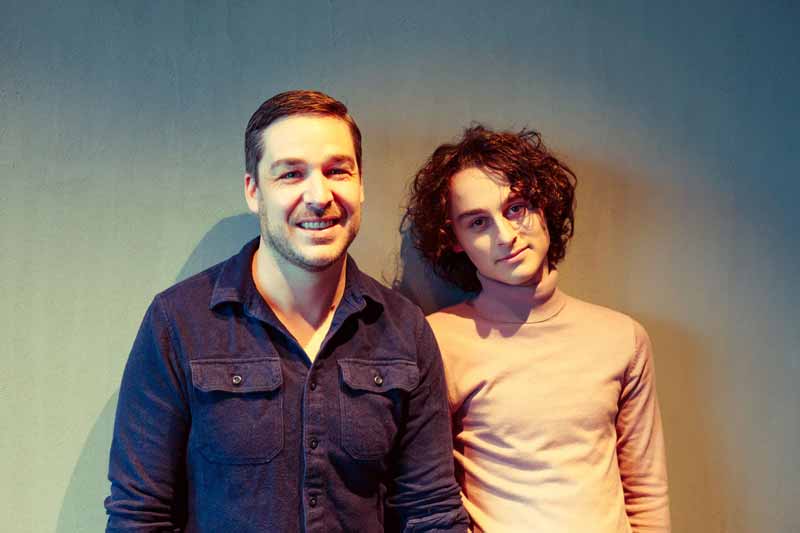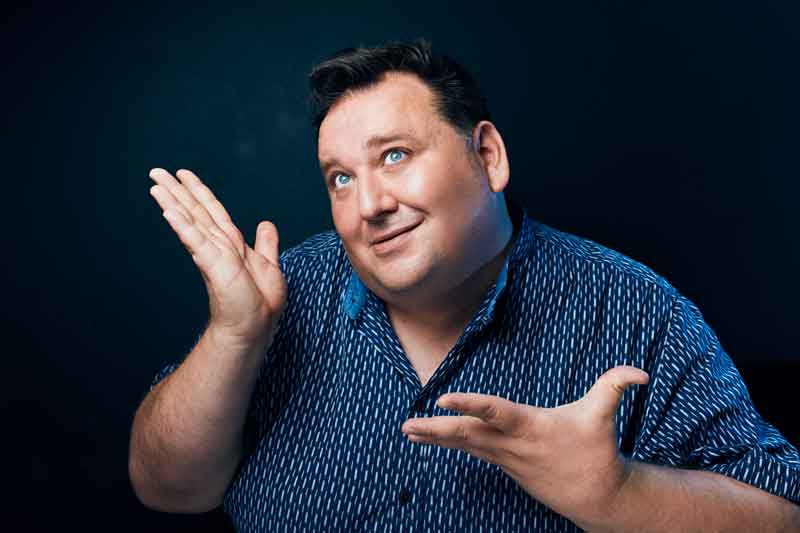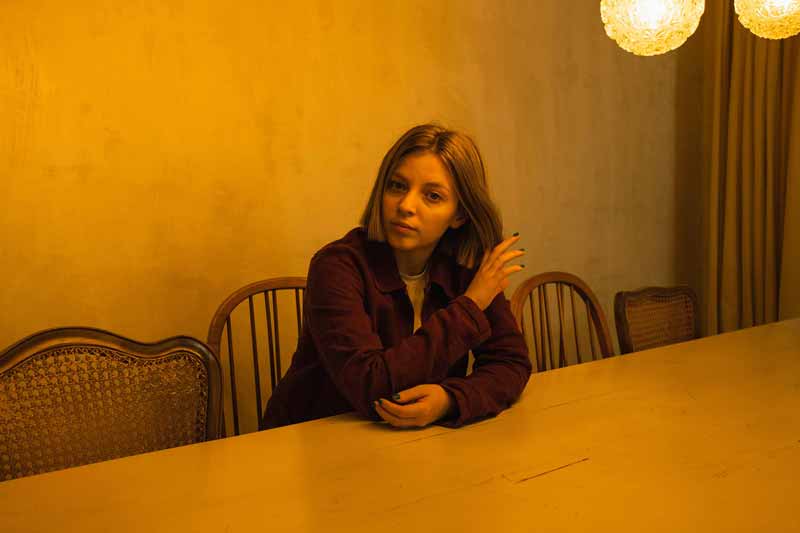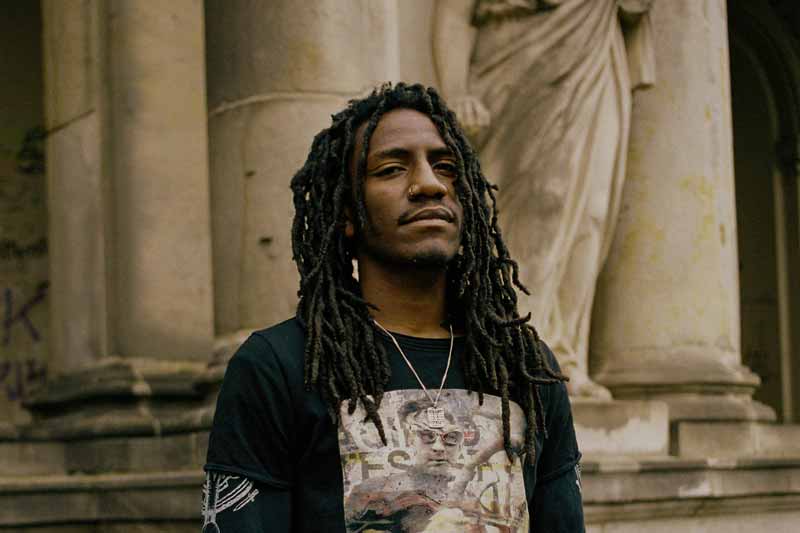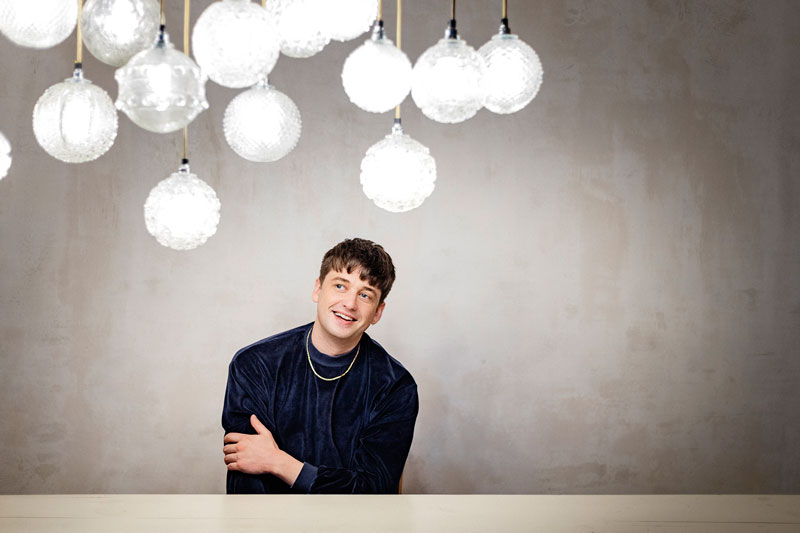Interview — Charlie Cunningham
Hype Is A Dodgy Thing
With »Permanent Way,« singer-songwriter Charlie Cunningham has now released his second album. Artistically it’s very touching and musically it’s quite unique—but that's something the modest Brit doesn’t want to hear about.
12. Juni 2019 — MYP N° 25 »Twilight« — Interview: Jonas Meyer, Photography: Maximilian König
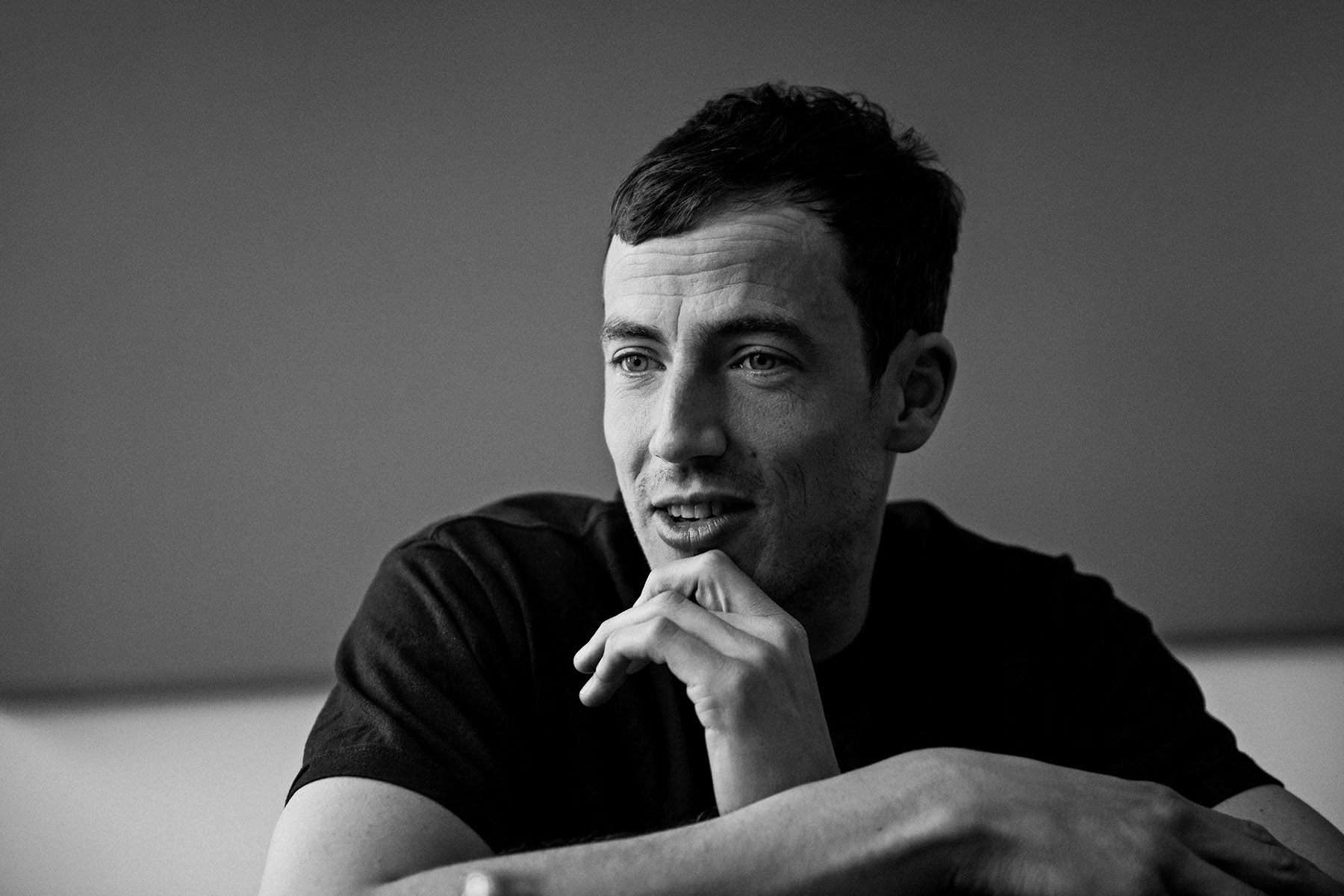
We have to be honest: The reason that the following interview came about is a very personal one. When Maximilian König and I were traveling in the woods of the Uckermark to produce a film at the end of March, we received a promo mail from Annett Bonkowski, our dear contact person at Verstaerker. In her message she introduced a certain Charlie Cunningham, who would release his second album in June.
In Annett’s promo mails, there are always interesting personalities from the music business, and you can often discover new music in a much more personal fashion than the cold algorithmic engines of Spotify could ever afford.
In this particular case, after a long, breezy day of shooting in the woods, we got into our car, checked our emails, glanced trough Annett’s message, and clicked on the attached YouTube link to the song “Permanent Way.” While the video was still buffering (network coverage in Germany is terrible), we hit the road. After a few moments we were on a foggy country road somewhere in the Uckermark. The dusk was just starting, the scenery seemed almost surreal, and suddenly out of nowhere the music started. Max and I looked at each other and said almost at the same time: „We have to meet this guy!“ Nothing could have fit the landscape and the mood better at this moment than this song.
Fast forward a few weeks to just before the European elections, and we are sitting with Charlie Cunningham in a small meeting room in BMG’s offices near the Gendarmenmarkt in Berlin. This Brit is the best example of what it feels like when Europe grows together, at least musically. Charlie is from tranquil Bedfordshire—situated between Birmingham and London—but eventually decided to relocate to Seville for two years where he learned the special technique of Spanish flamenco guitar. He then moved to London, and several EPs later, released his widely acclaimed debut album Lines in 2017. Now Charlie’s second album is here, which bears the name Permanent Way, just like its titular song. Everyone should find out for themselves how this wonderful record feels. For us it will always be the foggy Uckermark in late March—after a long day in the woods, just before dusk.
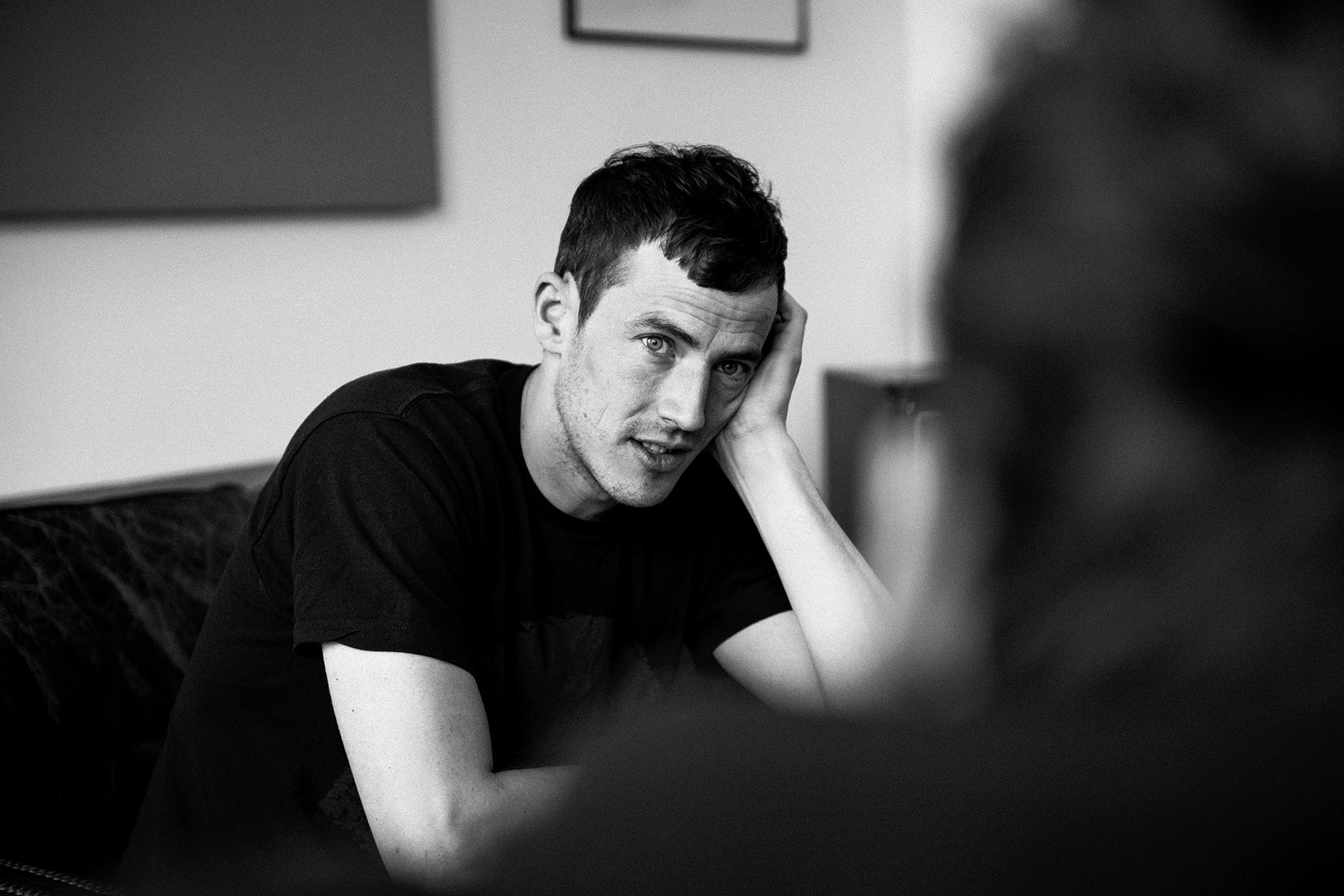
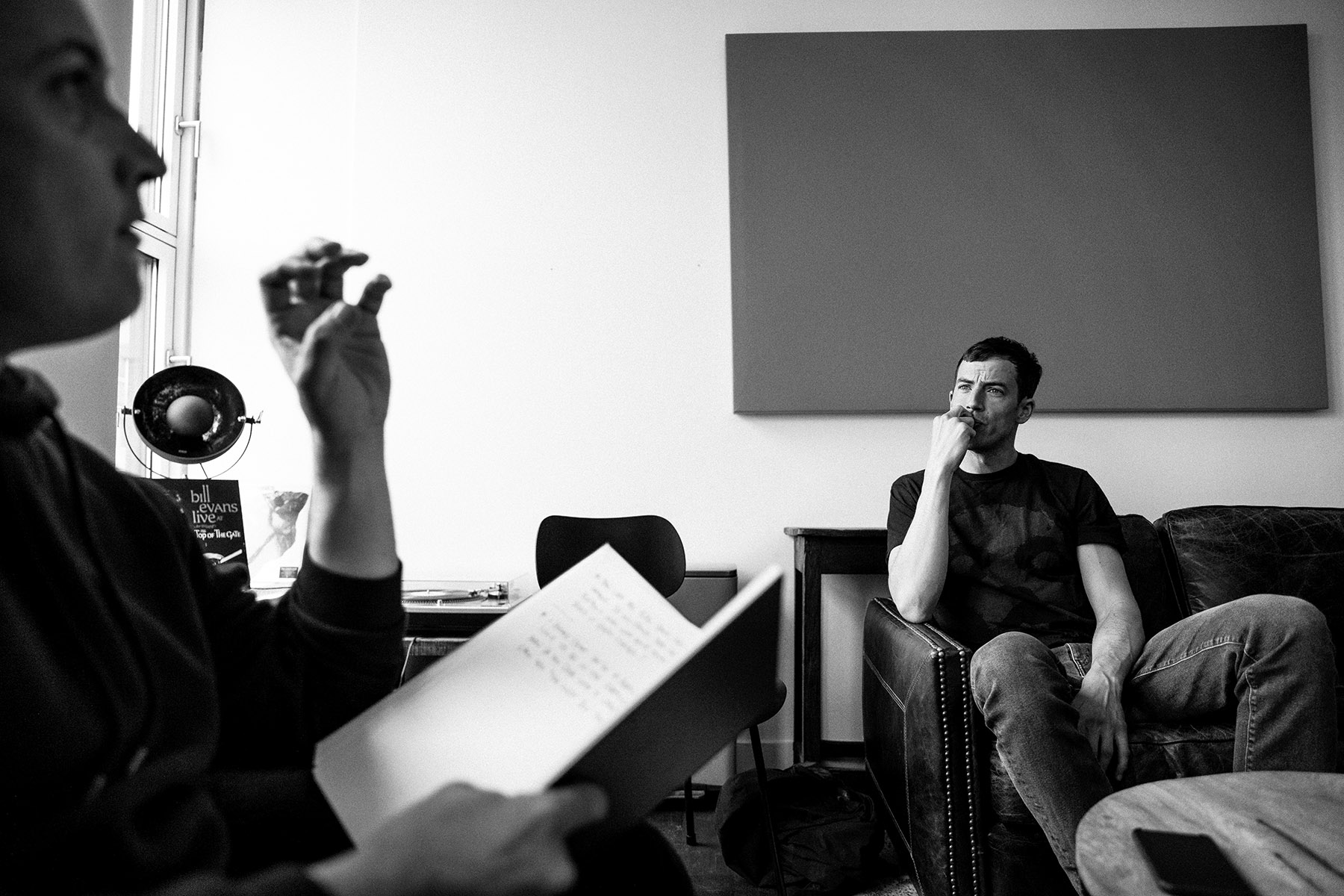
»Europe is quite a big deal for me in every kind of aspect.«
Jonas:
At the moment, it feels like more people are talking about Europe than ever before. What does Europe mean to you? First, in general terms, and second, in musical terms?
Charlie:
I’m very proud to be European. Europe, to me, means a melting pot of cultures and ways of life that feels amazing to be a part of. Being from the U.K., you know, we’re kind of a separate island, so it’s lovely to have some feeling of togetherness. Everything that is going on at the moment is quite heartbreaking for me and for lots of people. But it’s not over yet, so let’s see what happens.
As far as musically, I’ve spent a lot of time in Spain, learning the Flamenco way of playing guitar. I love traveling around Europe, listening to all the different types of music that you hear. So, Europe is quite a big deal for me in every kind of aspect.
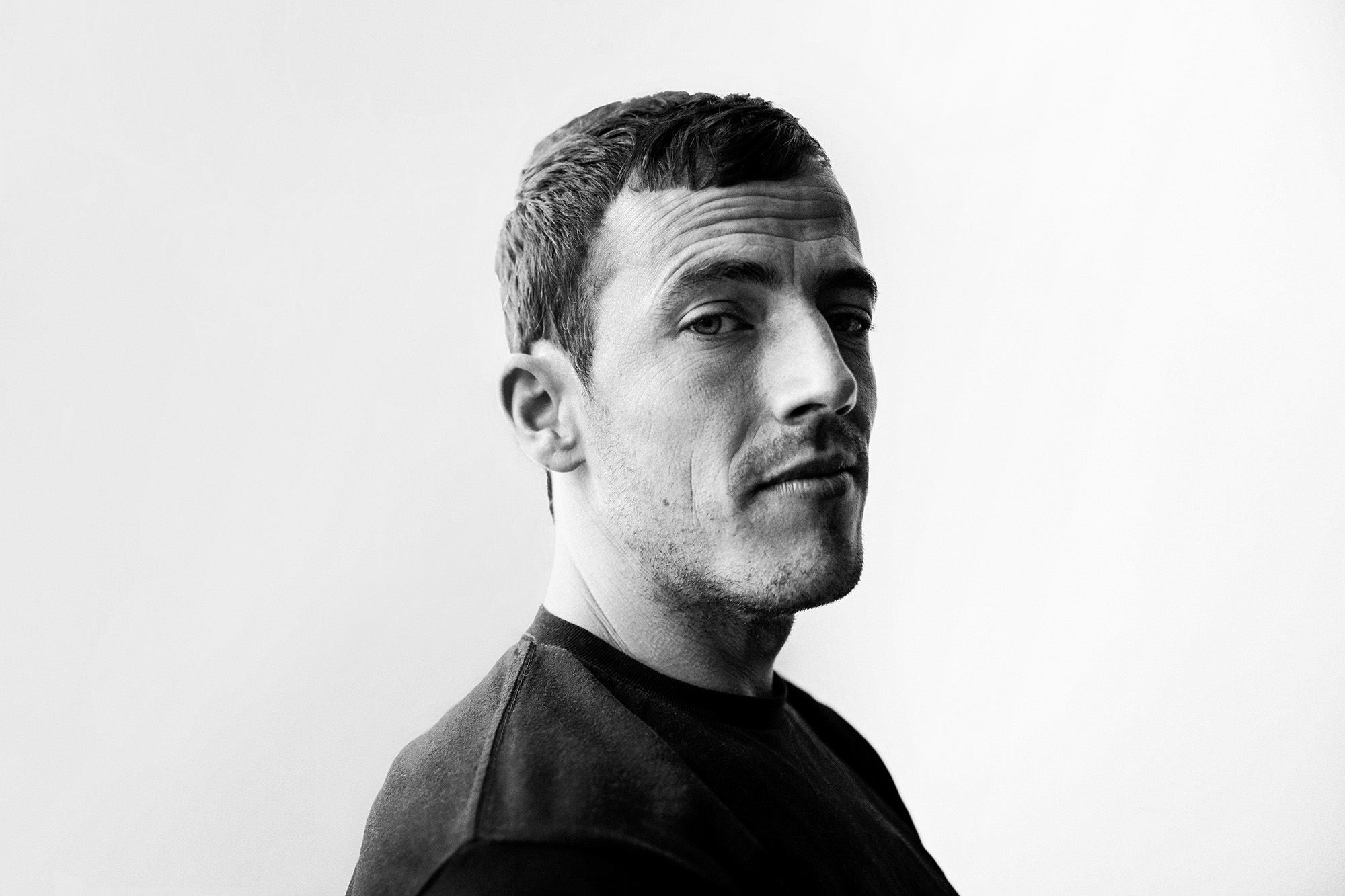
»When I’m in London, I think I miss the quiet, the green, and, when I’m waking up in the morning, not to hear any sirens or shouting.«
Jonas:
You’re a person that seems to travel a lot. What do you miss most about Bedfordshire when you’re on the move? And what do you miss about Seville when you’re not there?
Charlie:
Oh man! About Seville, I miss everything—the weather, the food, the pace. I live in East London, that’s got quite a fast pace. Seville is amazing, it’s a mixture of all sorts of creative people. I grew up in the countryside right on the edge of Buckinghamshire and Bedfordshire. When I’m in London, I think I miss the quiet, the green, and, when I’m waking up in the morning, not to hear any sirens or shouting—the sound of the city.
Jonas:
What did growing up in Bedfordshire mean to you?
Charlie:
I felt really cut off there which was great because I was permanently outside—me and my friends were always on our bikes. And it was local, everyone knew each other. You could walk down the street and see people you know everywhere.
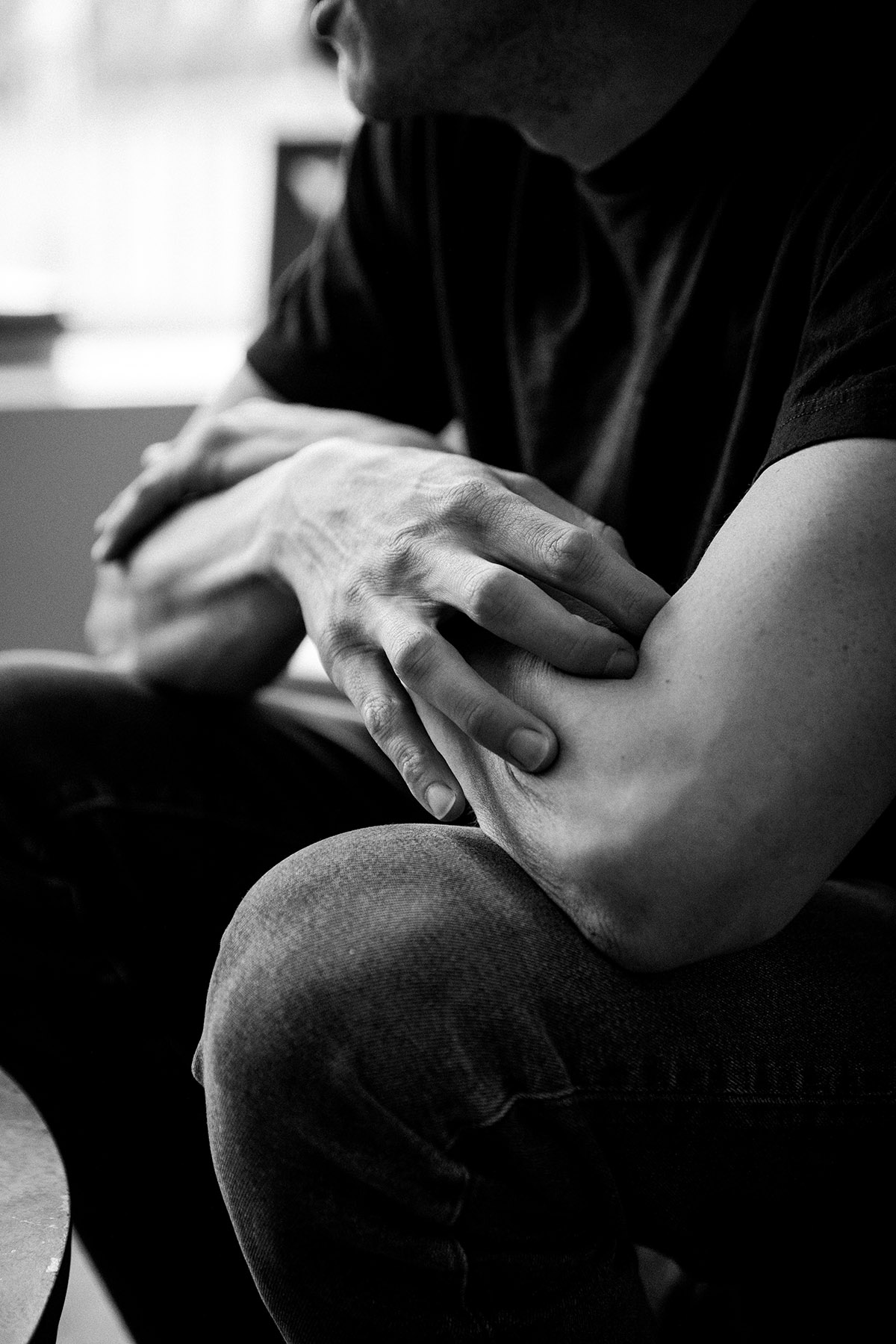
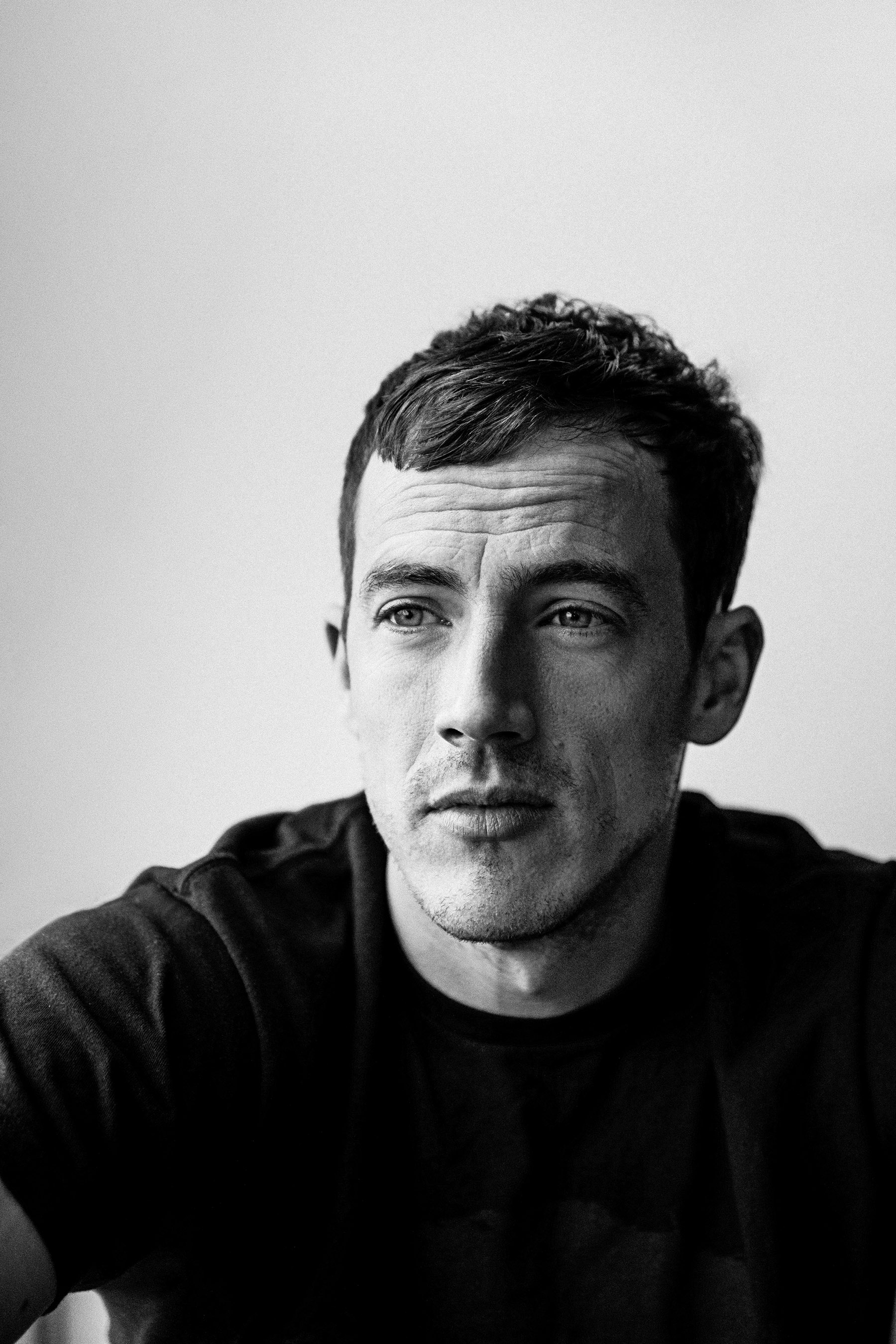
»I needed to do an album like ›Lines‹ first which was basically to show what kind of songwriter I am.«
Jonas:
In the press kit we got, you say that you were planning an album like Permanent Way a long time ago. What kind of album did you want to create back then? What did you have in mind?
Charlie:
I think, back then, I loved the idea of being quite adventurous with instrumentation, with the types of songs, creating contrasting atmospheres that all kind of work together. But I needed to do an album like Lines first which was basically to show what kind of songwriter I am. It was about the fundamental of the song, and about giving some context to myself to anyone who might be listening to me. So, with the next record, Permanent Way, you already have that context.
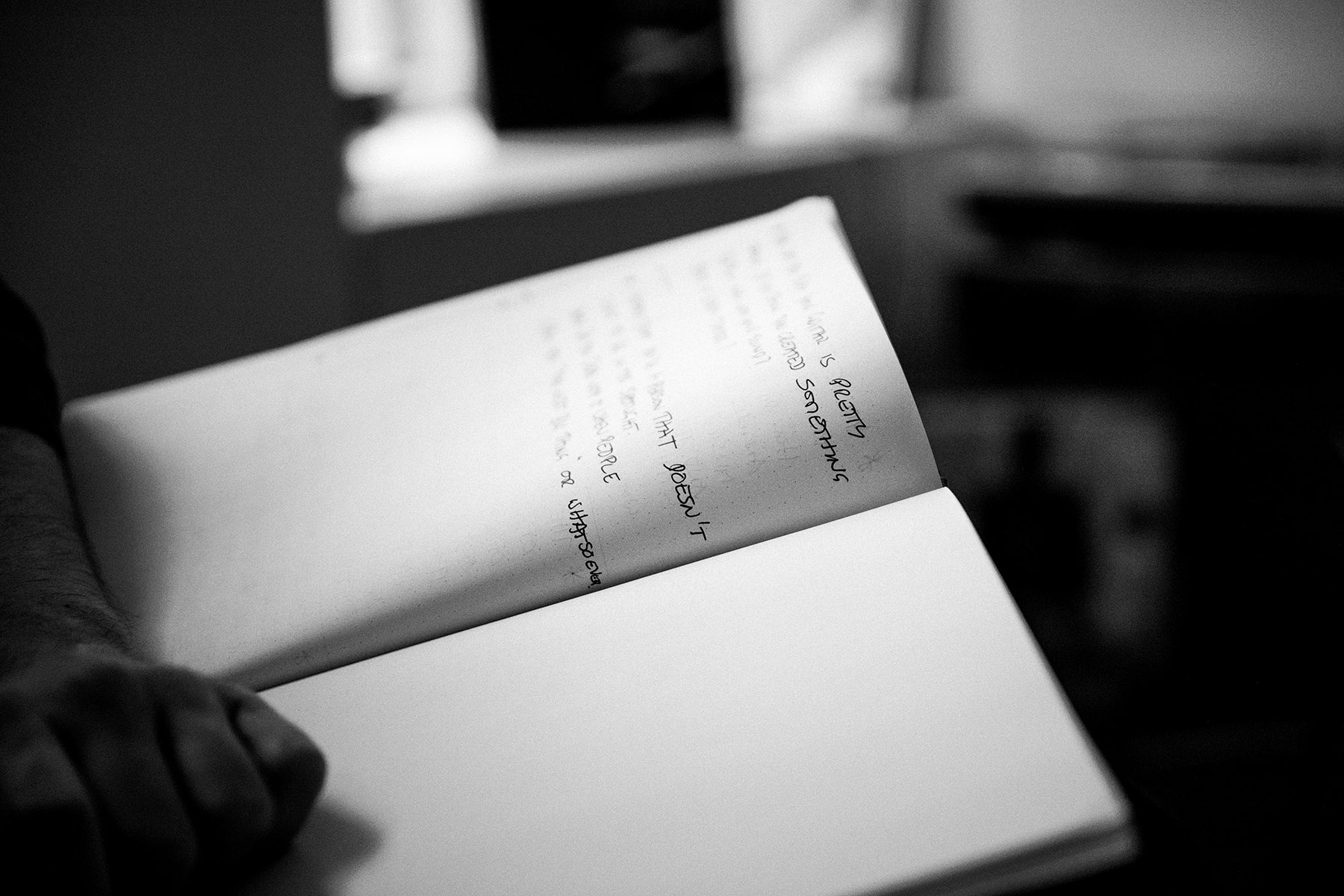
Jonas:
If Lines stands for simplicity, what would you say Permanent Way stands for, if you could reduce it to one word?
Charlie:
One word is hard, I’m not sure if I’m able to. People talk about the second album being a “pressure album,” but for me, the debut album was the difficult one. It was a big relief that it came out how it was and that the people liked it. So I felt quite liberated. On Permanent Way, there’s kind of a freedom, I didn’t feel any pressure on my shoulders because I think I knew what I was doing. Maybe the word you were asking for is freedom in the end.
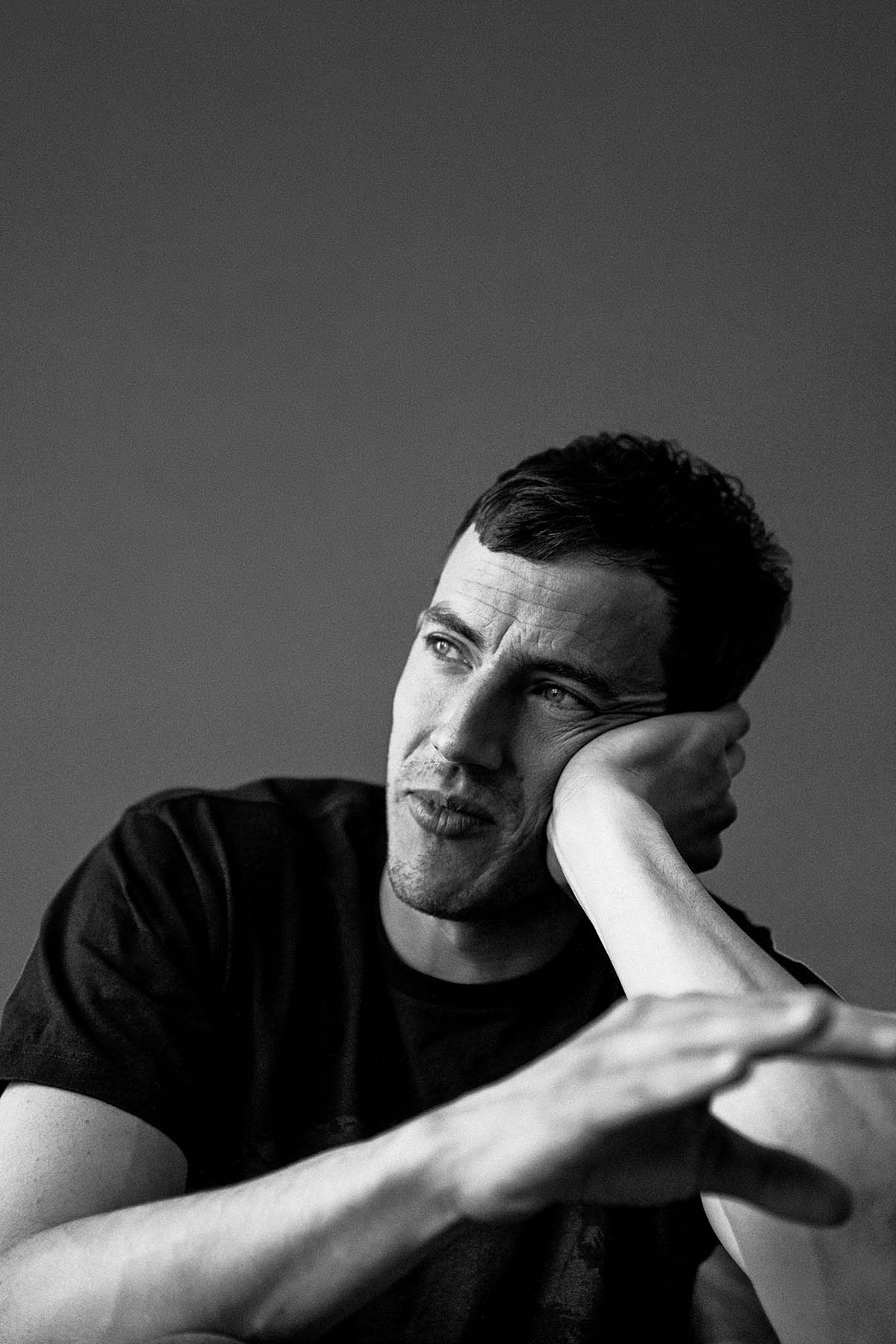
»I’m more interested in people generally and their interactions.«
Jonas:
Recently we had an interview with a movie director. He told us that, for him, creating roles and characters is all about watching people and observing them on the streets, in cafés, or wherever. Is it the same with writing a song?
Charlie:
Yeah, I think so. Musicians often write about themselves and their emotions which is important and valid. But it’s mainly interesting for the person who writes the song. I’m more interested in people generally and their interactions—especially nowadays, it’s pretty crazy.
Jonas (shows his smartphone):
… and this little thing is more important than personal contact.
Charlie (laughs):
Absolutely! It seems to be more important than anything else. That’s actually something I’m also looking at. I mean, there’s personal stuff in this little thing, too, but you have to be aware of what you’re thinking and feeling.
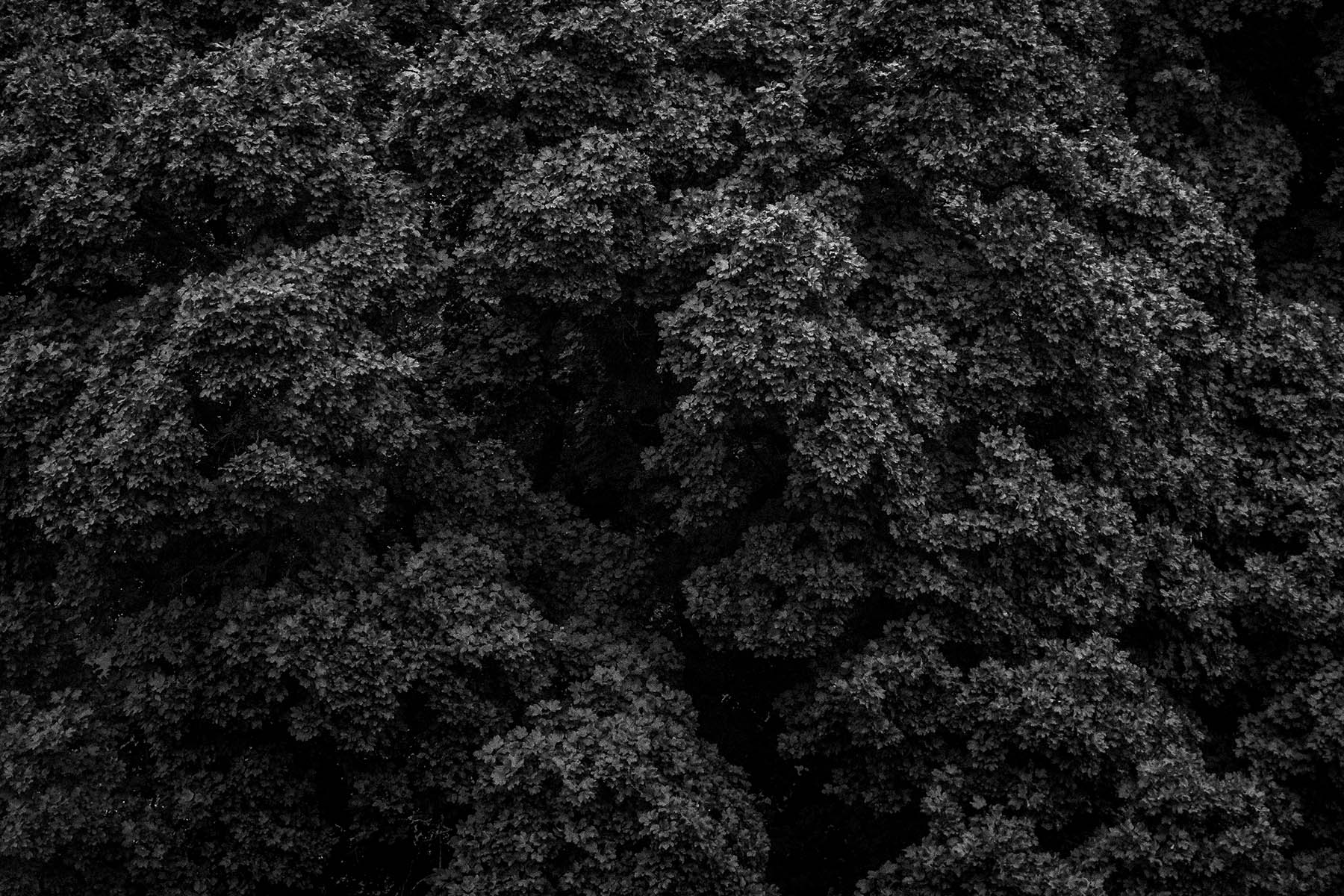
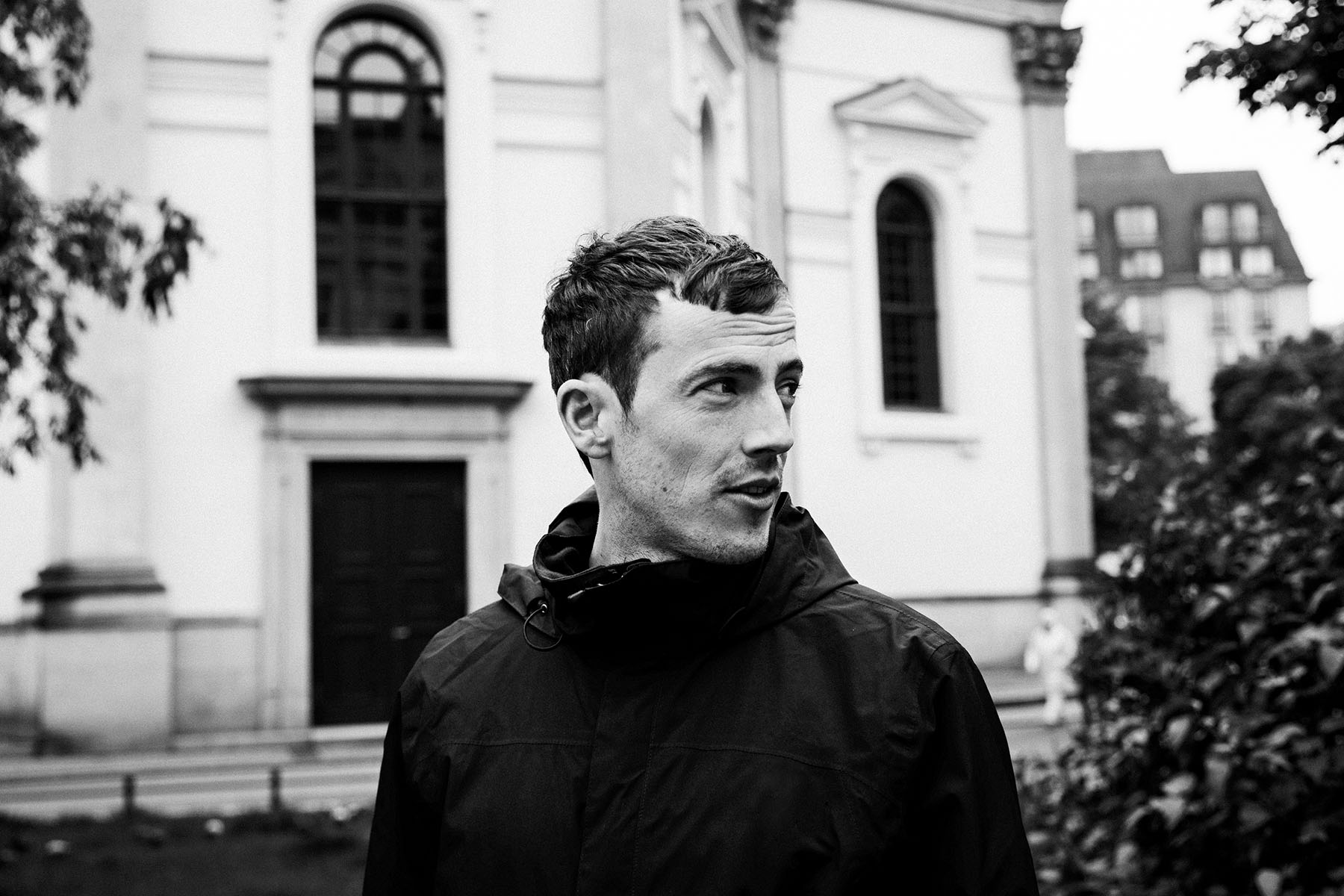
»It’s pretty grey in Catford, South London, so it’s nice to have a little percentage on the album made in California.«
Jonas:
You’ve been in Los Angeles for a while creating your new record…
Charlie:
… yes, but just for two weeks. Eighty to ninety percent of the record was done in London.
Jonas:
L.A. seems to be the prototype of a busy city. How did you perceive the city of Los Angeles in a time when you were working on such a thoughtful record like Permanent Way?
Charlie:
I absolutely know what you mean. I’d written all the songs first, so I wasn’t going there to find the inspiration. I used to spend the whole day in the studio, so I wasn’t really in L.A., to be honest. Actually, there was just one reason to go there. I met Rodaidh McDonald—who is an award-winning music producer—in London and I told him that I would love to record a couple of tracks with him. But he said that he was just moving to Los Angeles why I decided to fly over for a couple of weeks. It was a nice contrast to Catford, South London, where the rest of the record was recorded. It’s pretty grey there, so it’s nice to have a little percentage on the album made in California.
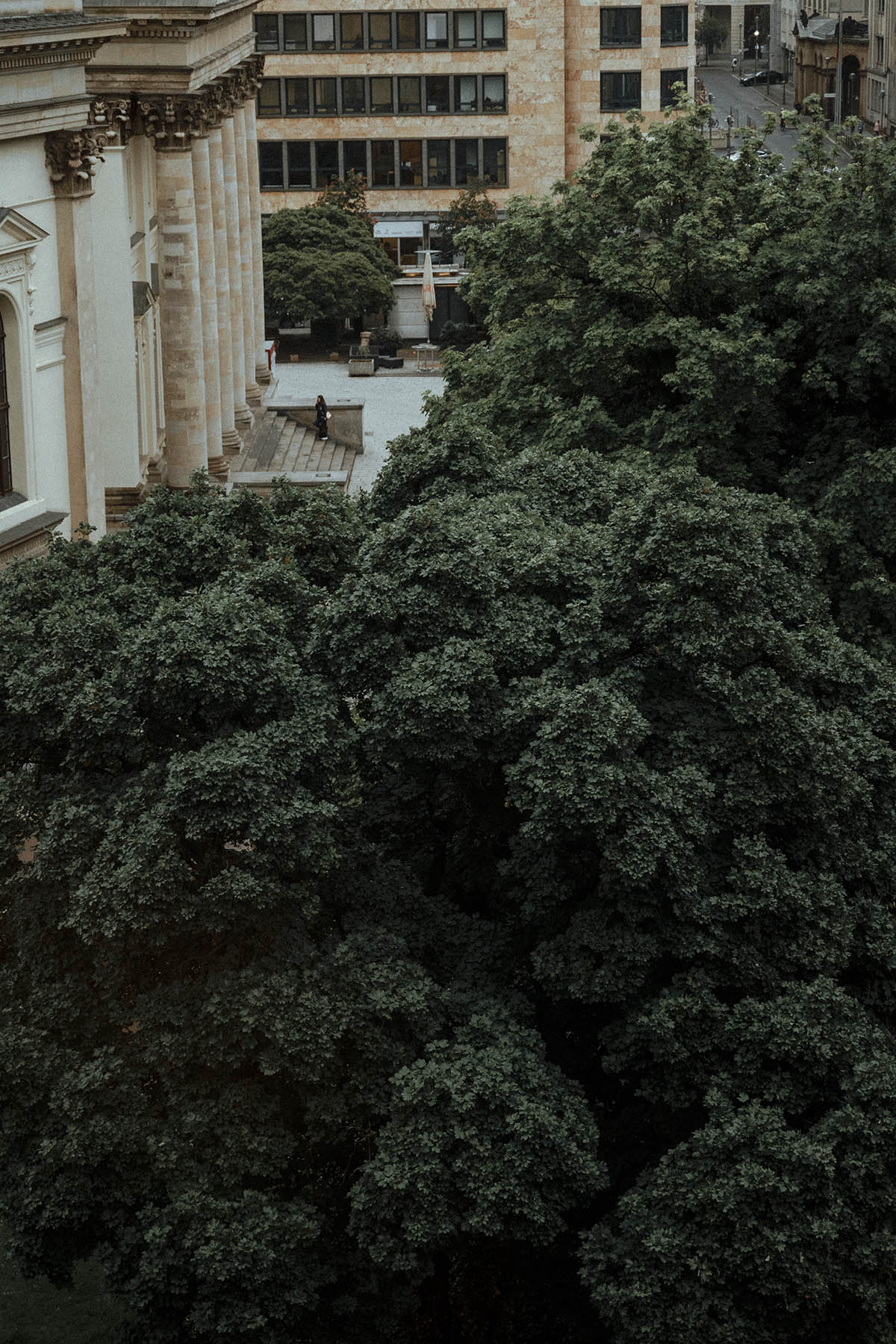
»All that imagery is trying not to be too distracting from the song when you’re watching the video.«
Jonas:
In the music videos you released over the last few weeks, there’s always a kind of black-and-white theme in the form of moving visuals captured in nature. What does this visual element mean to you?
Charlie:
All that imagery is trying not to be too distracting from the song when you’re watching the video, it’s trying to keep some consistency with everything. These shots are pretty lovely, but they are also quite dark and moody. There’s a beauty in it that is never overwhelming. These visuals try to draw a fine line and to create a setting that is not overpowering.
Jonas:
How did you get the idea?
Charlie:
The idea came from the album cover which is a beautiful image taken by my friend Peter Banks. It’s funny because it looks like a wonderful setting out in nature, but actually it’s in the Hackney Marshes in the north of London—the little bit of nature that is existing there. It just felt like a thing that we wanted to explore, and so we went back and took all those other photos and videos based on that one.
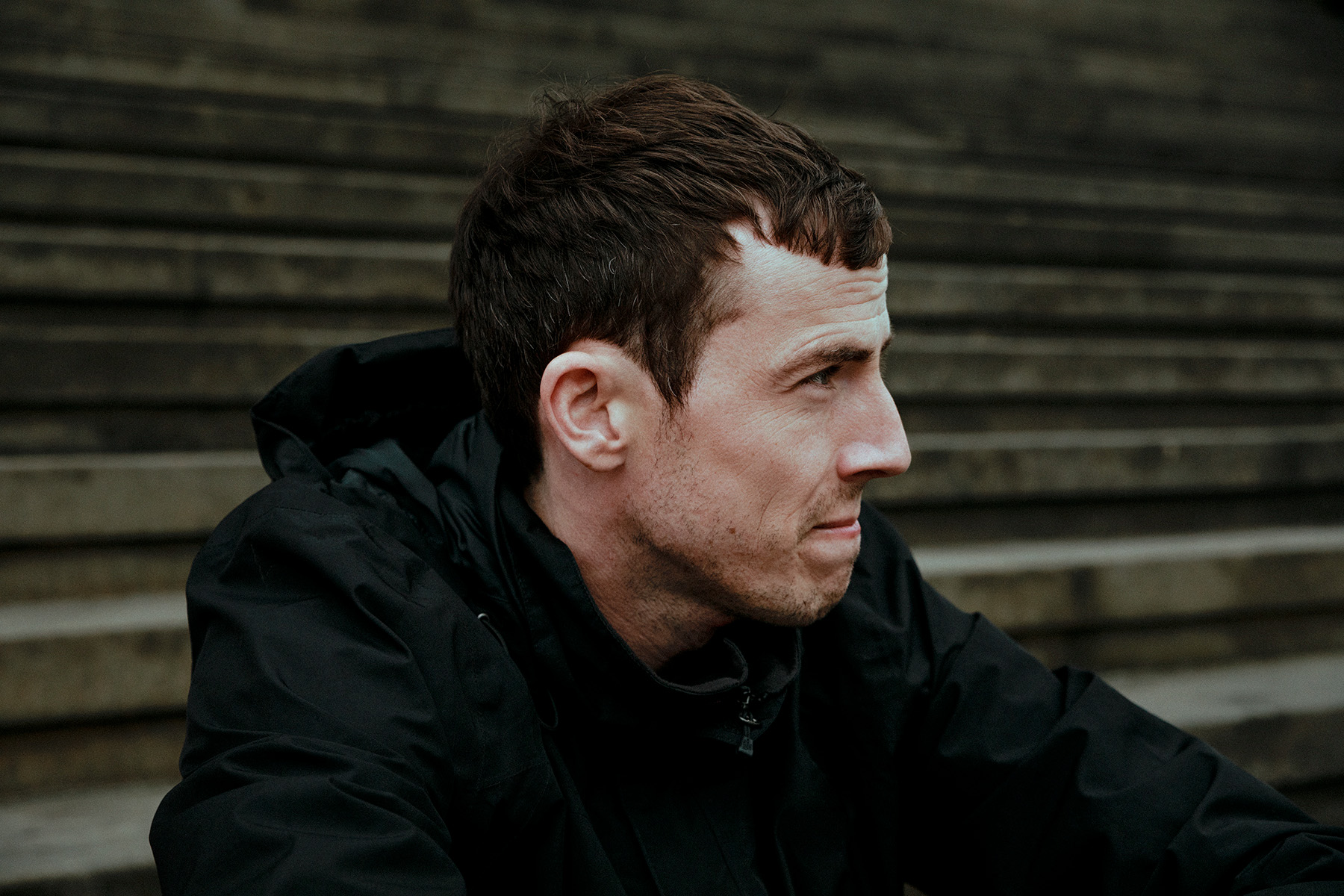
»I think the definition of music by genre and all that other stuff becomes more and more meaningless.«
Jonas:
I found a lot of articles about you that try to describe your very special musical style. I think music has always been defined by its genre or character—pop, rock, indie, ambient, whatever. Shouldn’t we start to define music by the effects it can have, by the emotions it can cause in humans?
Charlie:
That would be awesome. I think the definition of music by genre and all that other stuff becomes more and more meaningless. This approach is just boring and out of date because today, it’s all crossing over. I’ve been making music for quite a while and people still come and ask, “What type of music do you make?” It’s really hard to answer, I have to throw lots of words in to describe that. I mean, I’m just creating environments and atmospheres—and I don’t want to use words like melancholic, sad or uplifting for that.
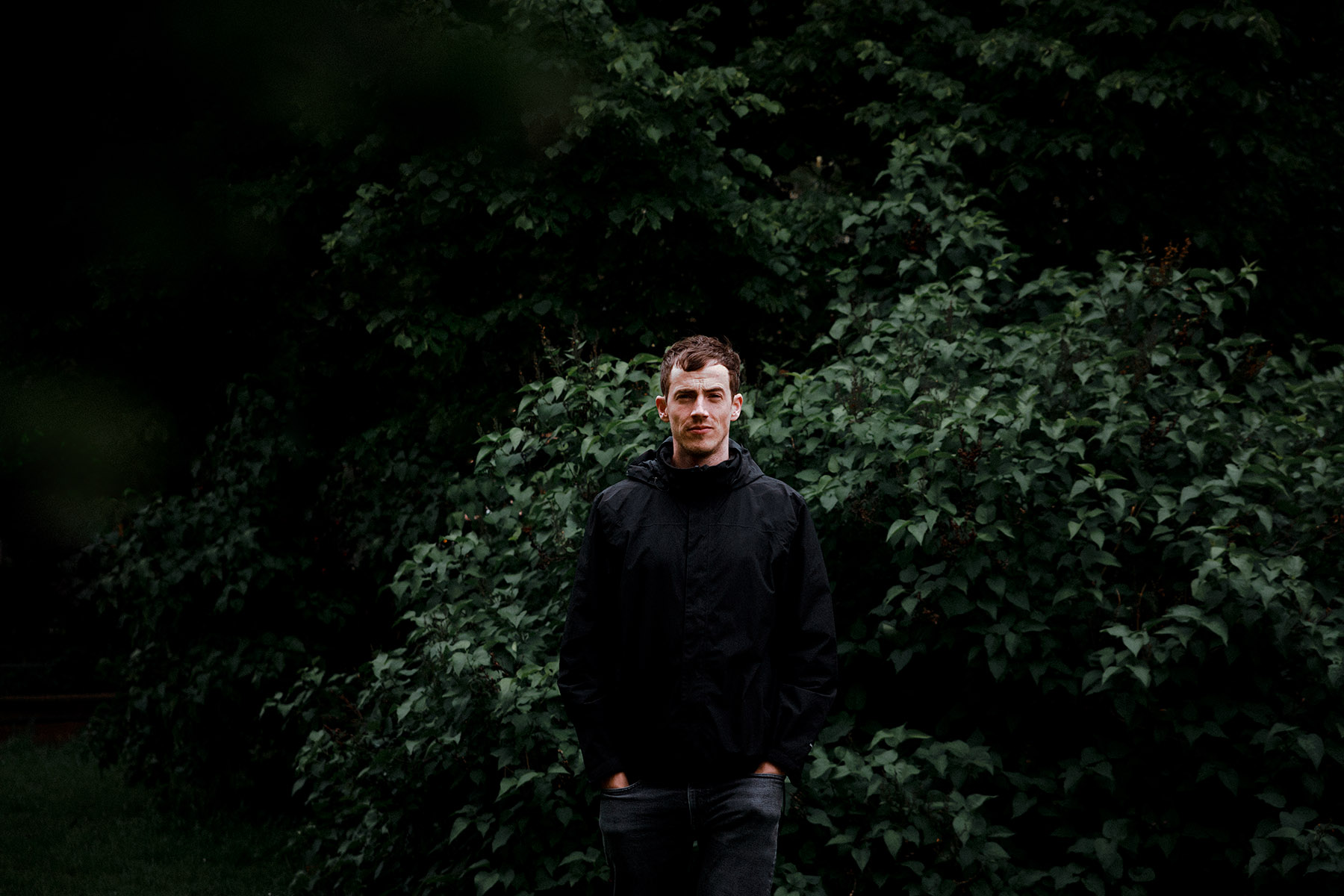
Jonas:
The way you play your guitar is very unique. Would you say you created something really new with your sound? Would that even matter to you?
Charlie (smiles):
I certainly wouldn’t want to say if I thought I did. I mean, every musician sounds different, so it’s generally not possible for anyone else to sound like Charlie Cunningham and the other way around. But to be honest, my guitar style is just the regular Flamenco guitar technique that I learned in Seville. What makes it very personal and individual is the combination of all my experiences and interests, that’s my thing. I grew up listening to a lot of music: punk, ambient, heavy metal music, also bands like Radiohead or Sigur Rós. I think that all influenced who I am and how I sound, that’s just honest to me.
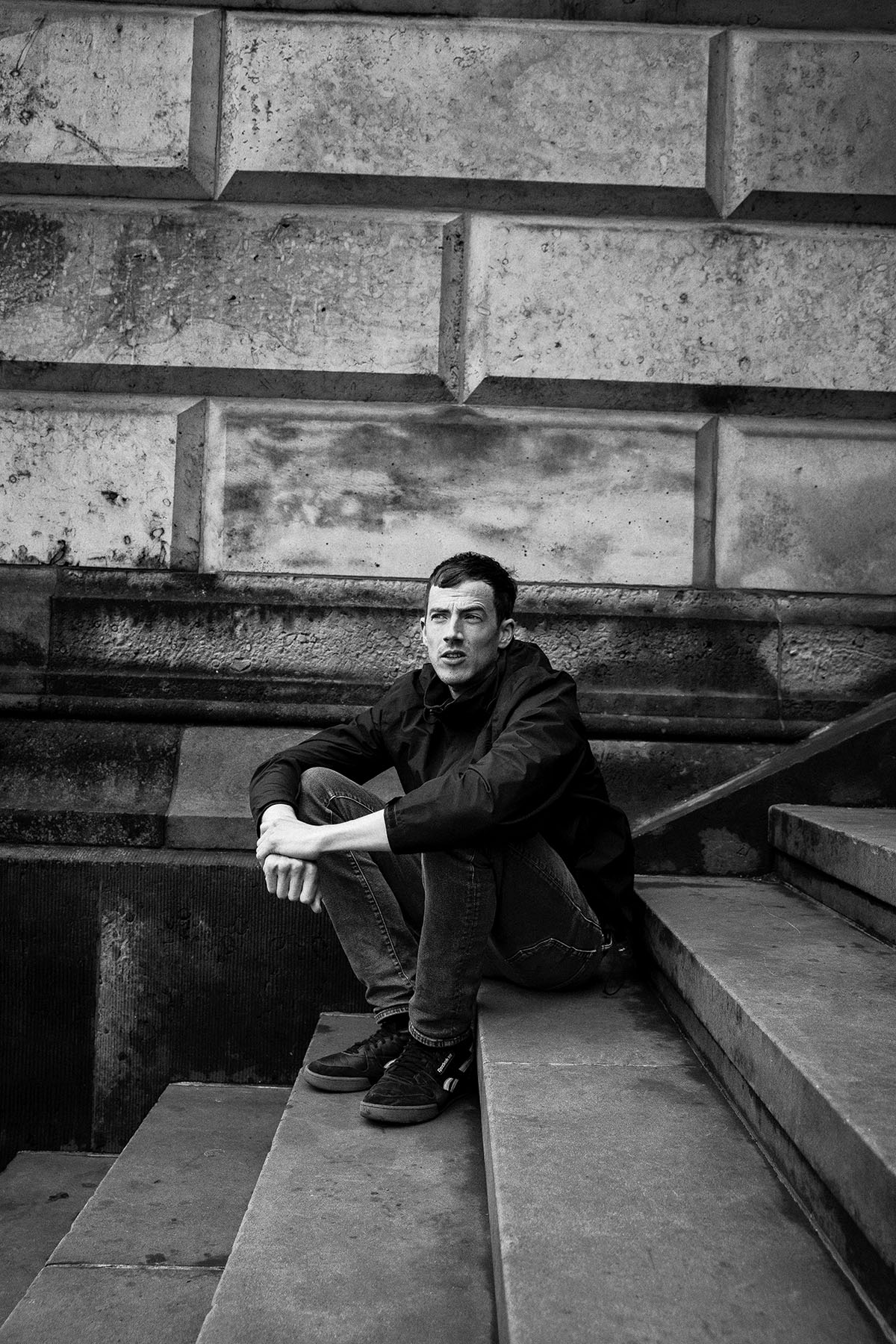
»We live in a society now where things feel very immediate and quick-fire, maybe there’s a void of meaning.«
Jonas:
In the last few years, neo-classical music artists like Nils Frahm, Ólafur Arnalds or Luke Howard have become more and more successful. They fill entire concert halls with their very ambient, melancholic, quiet, and touching music. Do you have an explanation why this kind of music has become so popular?
Charlie:
I don’t really know, but I guess people have a longing for depth and they want something that feels kind of emotional. We live in a society now where things feel very immediate and quick-fire, maybe there’s a void of meaning—and this type of music connects with people a little bit more.
Jonas:
I heard that you’re a person that doesn’t like to be in the spotlight. How do you deal with it when people call you “the next big thing?”
Charlie (laughs):
It’s the music industry people, they say shit about everyone all the time. That stuff comes and goes—and as long as I can avoid that, that’s definitely better. Hype is a dodgy thing, don’t believe it!
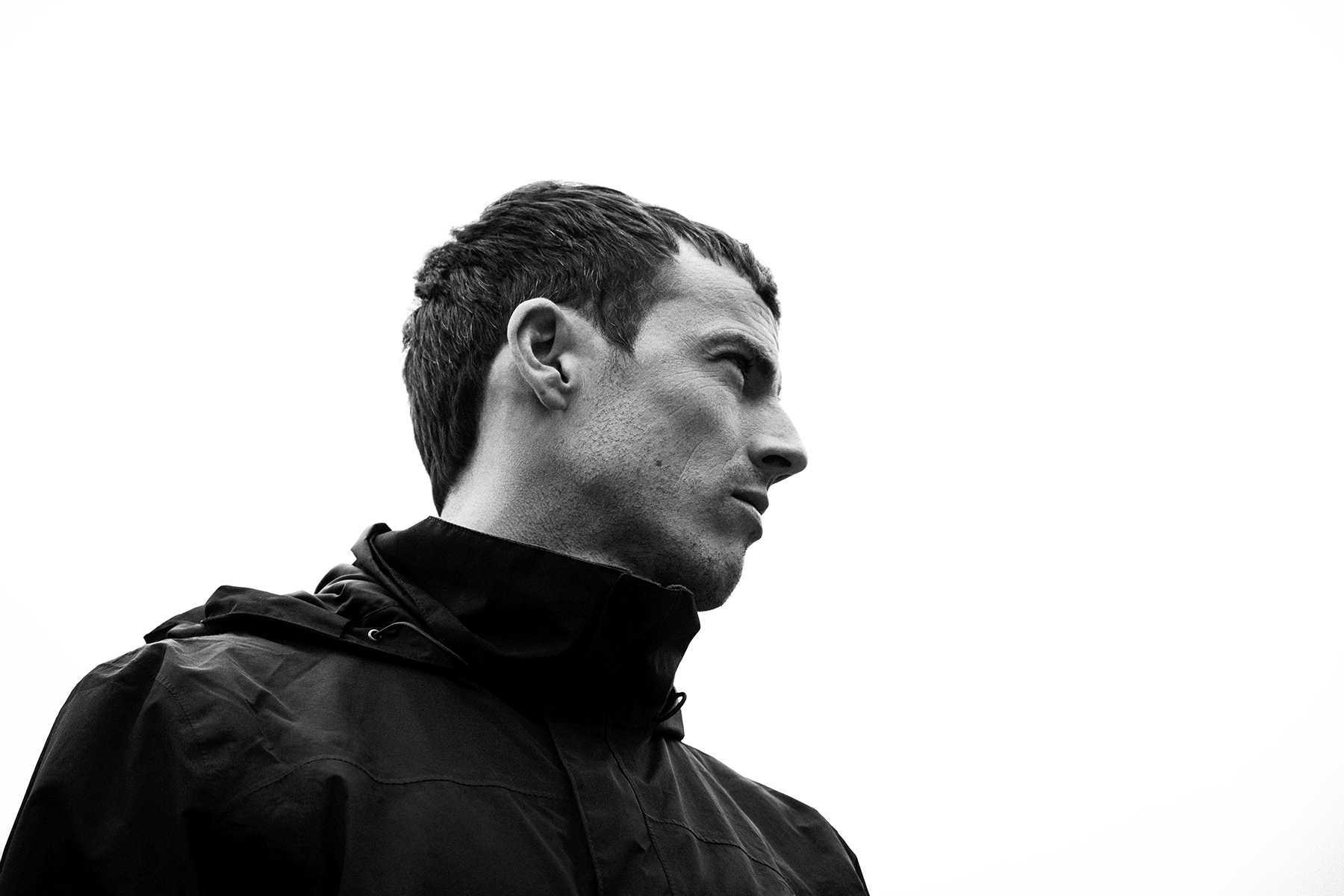
#charliecunningham #permanentway #mypmagazine #maximiliankoenig
More about Charlie Cunningham:
charliecunningham.com
facebook.com/charliecunninghammusic
instagram.com/cunninghamcharlie
twitter.com/charlie_c_music
Photography by Maximilian König:
maximilian-koenig.com
instagram.com/studio.maximilian.koenig
Interview by Jonas Meyer:
Editing by Benjamin Overton:
